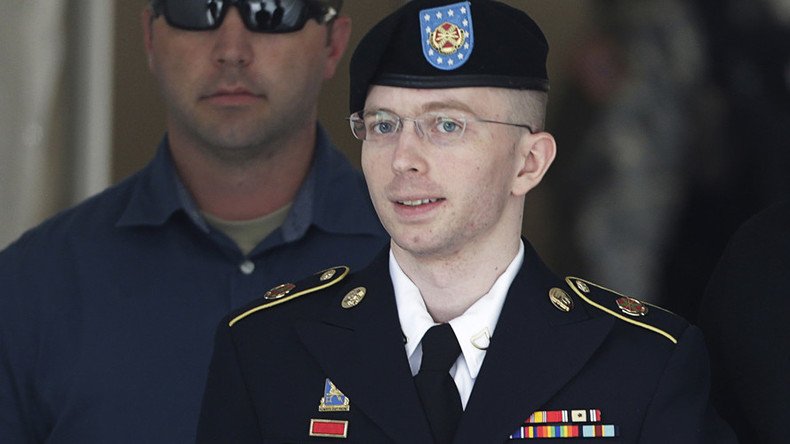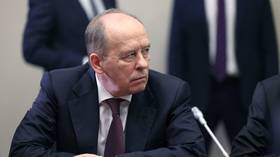'Chelsea Manning's example of courage paved the way for Snowden & Assange'

By revealing confidential documents to the public, Chelsea Manning set an example to future whistleblowers. She went ahead without fear of severe punishment, including the death penalty, Annie Machon, former MI5 intelligence officer, told RT.
After serving seven years of a 35-year sentence for leaking classified documents Chelsea Manning has been freed.
RT: Was it worth it, in your opinion, for Chelsea Manning to make all these revelations and then be kept in prison for such a long period?
Annie Machon: I think that Chelsea Manning knew the risks that she was taking. She was prepared to pay the legal price for exposing this. But she followed her conscience and thought it was worth taking that risk. I think she would stand by this today, despite the inhuman treatment she has received at the hands of the military police and the military legal system in the USA.
I also think there were two other perhaps unforeseen outcomes by her courage by going public and following her conscience. First of all, was the fact that it was the stories that WikiLeaks acquired unknowingly from her that took that organization global back in 2010. Now that’s had legal repercussions for Julian Assange and the rest of the WikiLeaks team. But that what propelled them to the global public consciousness, and they have continued fearlessly to do their job to continue to release information that is very much in the public interest.
CIA is world’s most dangerously incompetent spy agency – Assange https://t.co/e722p5eDdo
— RT (@RT_com) May 17, 2017
Most recently the Vault 7 files about CIA spy interception capabilities, which can hack into all our day-to-day equipment around our homes. That was one perhaps one unforeseen outcome of what Chelsea Manning did. I would suggest the second one as well: she provided a wonderful example to future young, brave whistleblowers, not least Edward Snowden. His disclosure started at the end of May 2013. He went public just as Manning’s trial was beginning, where she was facing up to potentially the death penalty, and of course, she got 35 years in prison in the end. So for Snowden to go public - despite that threat to a previous whistleblower - shows that the concept that governments use to crush whistleblowers, to destroy them, to deter future whistleblowers does not work.
Also then Snowden was trapped in transit between China and Ecuador, where he had been granted asylum in 2013. He ended up stuck in a Moscow airport and then given asylum by Moscow for a number of years. If WikiLeaks had not been in that global position to go in and help Snowden… from China to get to his political asylum in Ecuador then he might be in a very different situation too. So I think these are two very, very important points which we should remember from the unforeseen outcomes from the bravery of Chelsea Manning.
#ChelseaManning's 35-year sentence for espionage was commuted by Barack Obama after seven years served https://t.co/7ghesdPfR1pic.twitter.com/QpzqtOBrEm
— RT America (@RT_America) May 17, 2017
RT: You’re a whistleblower yourself. What can you tell us about your personal experience? Is it a tough job?
AM: Yes, I am a whistleblower from the old school from the 1990s, the analog-era effectively. But I worked for MI5 for six years as an intelligence officer, and it was there that I met my former partner and colleague, a man called David Shayler. We saw so many things going wrong at that time - only within six years - that we decided to resign and to go public. We tried to raise our concerns on the inside, and we were just told to ‘follow orders.’ So they had no will to reform or will to correct mistakes that were committing crimes in secret.
So we went public. And under the laws of the UK, we also faced automatic arrest and imprisonment for speaking out about the crimes of the spies. So we fled the country, we went on the run for a month around Europe; we went and lived in hiding for a year in France, and we lived in exile for another two years. I was arrested; many of our friends, family, supporters, and journalists involved in the case were arrested. Shayler himself went to prison twice. First of all, when the British failed to extradite him from France in 1998 to stand trial under the Official Secrets Act of 1989, and then after he returned voluntarily to face trial in 2000. Of course, he was convicted, because there was no legal defense under the Official Secrets Act, and he went to prison again. So we both paid a very high price… to expose the crimes of the spies.
The statements, views and opinions expressed in this column are solely those of the author and do not necessarily represent those of RT.












